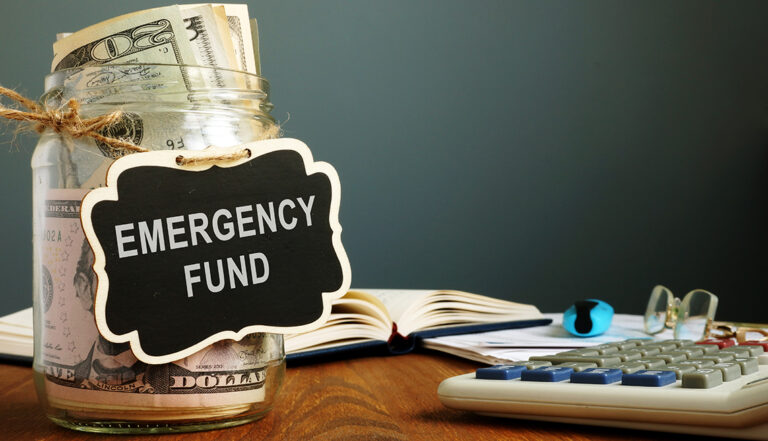When thinking about financial preparedness, few scenarios seem as extreme as a zombie apocalypse. While the literal rise of the undead is unlikely (hopefully!), the metaphor serves as a reminder of how critical it is to prepare for uncertain times. Whether it’s an economic downturn, a natural disaster, or an unexpected global crisis, having the right financial strategies in place can help you survive and even thrive when the unexpected happens.
Here’s your guide to zombie-proofing your finances and staying prepared for any financial apocalypse life throws your way.
1. Build an Emergency Fund: Your Financial Lifeline
In any crisis—zombies or not—an emergency fund is your first line of defense. This cash reserve helps you cover essential expenses if your income is disrupted, such as losing a job or facing unexpected expenses like medical bills or home repairs. During uncertain times, having cash on hand can mean the difference between staying afloat or falling into financial chaos.
How to Build Your Emergency Fund:
- Start small: Aim to save at least $1,000 as an initial emergency cushion.
- Increase gradually: Over time, build your fund to cover three to six months’ worth of living expenses, such as rent, utilities, groceries, and insurance.
- Keep it accessible: Store your emergency fund in a high-yield savings account or money market account where it’s easily accessible and can earn a bit of interest.
While this may not save you from an actual zombie horde, it will protect you from unexpected financial crises that can knock you off course.
2. Diversify Your Income Streams: Don’t Rely on One Source
In the face of a financial apocalypse, relying on a single source of income can be risky. If that income source disappears—whether through job loss, economic downturn, or business closure—you could find yourself financially stranded.
How to Diversify Your Income:
- Side hustles: Explore side gigs that align with your skills, such as freelancing, consulting, or even selling products online. Having multiple streams of income can provide a safety net.
- Passive income: Look into ways to generate passive income, such as investing in dividend-paying stocks, real estate rental properties, or creating digital products like e-books.
- Gig economy: Take advantage of gig platforms like Uber, DoorDash, or TaskRabbit for flexible income-earning opportunities that can supplement your main income stream.
Diversifying your income will give you more financial resilience, so even if your primary job is impacted, you still have a way to keep money flowing in.
3. Pay Off High-Interest Debt: Avoid Financial Brain Drain
Carrying high-interest debt can be a major financial vulnerability, especially in uncertain times. The longer you carry debt, the more you pay in interest, which can drain your financial resources like a zombie feeding on your brainpower.
How to Tackle Debt:
- Prioritize high-interest debt: Focus on paying off credit cards, payday loans, and any other debt with a high interest rate first. This will free up more of your money in the long run.
- Debt snowball method: Pay off your smallest debts first, then move on to larger ones. This approach builds momentum as you eliminate debt one by one.
- Debt avalanche method: Alternatively, pay off debts with the highest interest rate first, which minimizes the overall interest you’ll pay.
Becoming debt-free is one of the best ways to shield your finances during uncertain times, reducing the monthly obligations you need to cover when resources are tight.
4. Stock Up on Essential Supplies (Including Financial Resources)
In any crisis, whether it’s a natural disaster or economic turmoil, having essential supplies can make all the difference. While prepping your emergency supply kit with food, water, and first aid is crucial, don’t forget to stock up on financial resources as well.
Financial Prepping Tips:
- Keep some cash on hand: In case of a banking system failure or power outage, having cash available will allow you to buy necessary supplies when digital payments might not work.
- Diversify your assets: In addition to cash, consider keeping a portion of your wealth in tangible assets like gold, silver, or even cryptocurrency. These can provide financial stability if traditional currency systems falter.
- Insurance coverage: Make sure you have adequate insurance coverage—health, home, and life insurance. These policies will help protect your assets and minimize out-of-pocket expenses during a crisis.
By having the right financial and physical resources, you’ll be ready to handle a range of emergencies.
5. Invest in Safe and Stable Assets: Prepare for Market Volatility
During times of uncertainty, financial markets can experience extreme volatility, much like panicked survivors running from a zombie horde. To protect your investments, it’s important to focus on safe, stable, and diversified assets that can weather market turbulence.
Stable Investment Strategies:
- Diversify your portfolio: Spread your investments across a variety of asset classes, including stocks, bonds, real estate, and commodities. A diversified portfolio reduces risk because different asset classes often perform differently during economic downturns.
- Consider low-risk bonds: Government bonds and municipal bonds are often seen as safer investments, especially during volatile markets. They provide steady income and lower risk than stocks.
- Look for dividend-paying stocks: Companies that consistently pay dividends tend to be more stable, even during economic downturns. Dividend stocks provide both potential capital gains and regular income.
The goal is to protect your portfolio from significant losses while still allowing it to grow steadily over time.
6. Create a Flexible Budget: Adapt to Changing Times
In uncertain times, it’s critical to have a flexible budget that allows you to adapt to changes in your financial situation. A rigid budget can quickly become impractical if your income fluctuates or unexpected expenses arise.
How to Create a Flexible Budget:
- Distinguish needs from wants: Identify your essential expenses (rent, utilities, groceries) and separate them from discretionary spending (dining out, entertainment). Focus on covering the essentials first.
- Adjust when needed: If your income changes, adjust your budget accordingly. You might need to cut back on non-essential spending or find ways to reduce your essential costs.
- Track your spending: Use budgeting apps like Mint, YNAB (You Need a Budget), or Personal Capital to track your spending and ensure you’re staying within your limits.
Having a flexible budget ensures you can survive financially in both good times and bad, much like adapting your strategy in a zombie survival scenario.
7. Have a Long-Term Survival Plan: Retirement and Beyond
Even in the face of a financial apocalypse, it’s essential to have a long-term survival plan, including saving for retirement. Focusing on long-term goals ensures that your financial future is secure no matter what short-term uncertainties arise.
Retirement Planning Tips:
- Contribute to retirement accounts: Make regular contributions to 401(k), IRA, or other retirement accounts. These accounts offer tax advantages and long-term growth potential.
- Diversify retirement savings: Consider diversifying your retirement savings between traditional and Roth accounts to benefit from both tax-deferred and tax-free growth.
- Reevaluate risk tolerance: As you approach retirement, reassess your risk tolerance and adjust your investment strategy accordingly to protect your savings.
Maintaining a long-term perspective will help you build financial resilience for whatever the future may hold.
8. Protect Your Income: Life and Disability Insurance
In an uncertain world, protecting your income and financial well-being is critical. Life insurance and disability insurance can provide financial security for you and your family if the worst happens.
Insurance Protection Tips:
- Disability insurance: This coverage replaces a portion of your income if you’re unable to work due to illness or injury, ensuring you can still cover essential expenses.
- Life insurance: Life insurance ensures that your loved ones are financially protected in the event of your death. It can cover funeral costs, outstanding debts, and provide for your family’s future needs.
These insurance policies act as financial safeguards, ensuring your family’s well-being, even in a crisis.
Final Thoughts: Survive and Thrive in Any Crisis
While preparing for a zombie apocalypse may seem like a far-fetched idea, it’s a powerful metaphor for financial preparedness. Uncertainty is a constant in life, whether it’s a global pandemic, economic recession, or personal financial hardship. By following these financial strategies, you’ll be better equipped to handle whatever challenges arise, survive the unexpected, and even thrive in uncertain times.
Just as you would in a zombie apocalypse, stay alert, be prepared, and always have a plan.





 GOOGL
GOOGL META
META
Leave a Comment